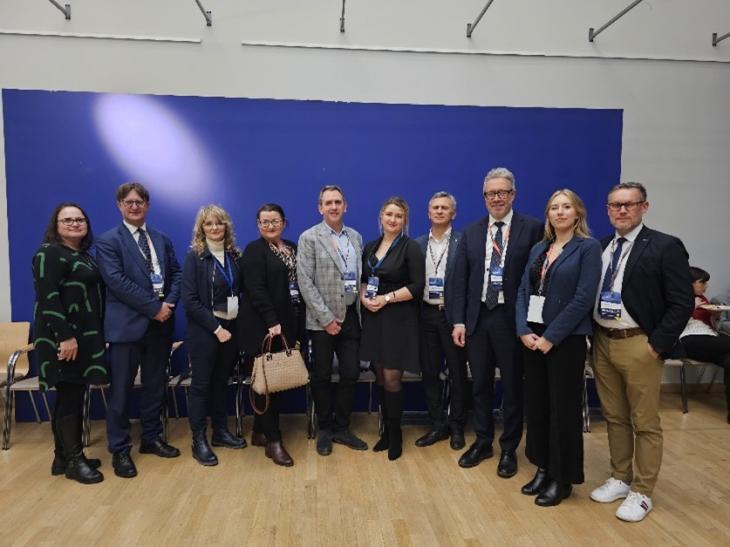Kraków Hosts Final 2023 Clusters meet Regions Event: Spotlight on Aerospace Technologies, Smart Cities, and Life Sciences
On 11 and 12 December 2023, the European Cluster Collaboration Platform (ECCP), on behalf of the European Commission in partnership with the Malopolska Regional Development Agency (MARR) and the European Association of Development Agencies (EURADA), jointly organised the Clusters meet Regions workshop in Kraków, Poland. This event, now in its second year, coincided with AGORADA+, a key annual gathering spearheaded by EURADA.
Marking its 14th transnational event, the ECCP concluded its 2023 Clusters meet Regions series with a focus on the adoption and advancement of aerospace technologies, smart city concepts and life sciences clusters. The workshop also aimed to increase awareness and utilisation of funding opportunities in Poland. The event had a turnout of 149 participants, including cluster representatives, regional authorities and business associations.
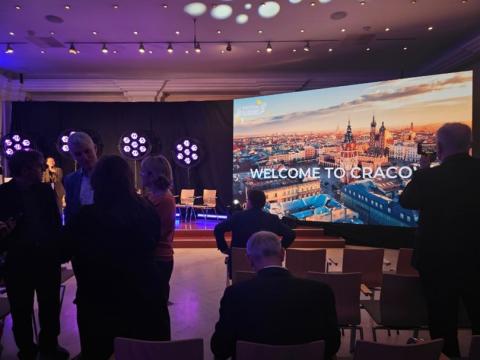
DAY 1
The workshop kicked off with Szymon Strzelichowski, President of Małopolska Agencja Rozwoju Regionalnego S.A., highlighting the region's commitment to bridging science and the economy. “We are dedicated to building bridges between science and economy, which lays the groundwork for regional development driven by innovation,” he stated.
Jerzy Muzyk, Vice President of the City of Kraków, emphasized the significant impact of space technologies on the Polish economy and Kraków's pivotal role as a major academic and research centre. He remarked, "Our clusters are actively involved in supporting the development of regional smart specializations, in line with the entrepreneurial discovery process."
Jakub Boratyński from the European Commission's DG GROW outlined the crucial role of clusters in achieving the Green Deal and digital transformation objectives. He stressed, "Europe is in a very special moment, facing rapid progress amidst ongoing crises. Our strength lies in our strategic autonomy... Clusters play a crucial role in this context, fostering innovation across Europe."
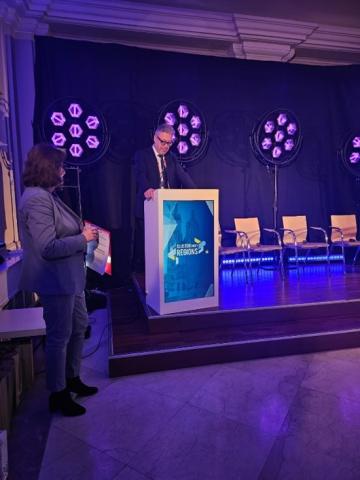 |
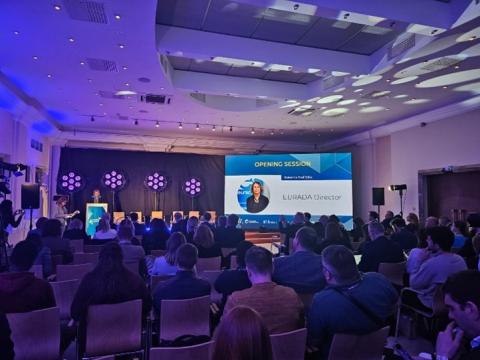 |
The workshop then explored Małopolska's regional economy, innovation landscape, and cluster ecosystems, with Dr. Jan-Philipp Kramer from ECCP presenting the newly released Input Paper on the region. Key points included Małopolska's robust GDP growth, challenges from the Ukrainian crisis, and the region's active participation in European and national cluster excellence initiatives.
After that, it was a full immersion in aerospace and cosmic opportunities. Starting with a panel on prospects for harnessing aerospace for regional development, the discussion explored space technologies, social perspective, and applications for everyday life.
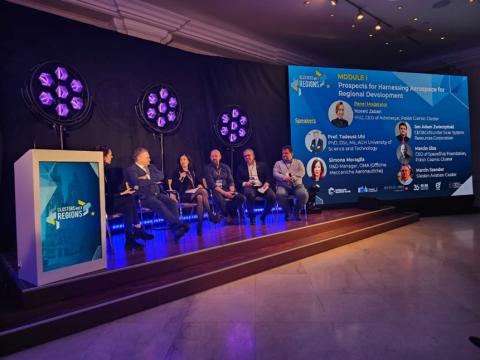
Prof. Tadeusz Uhl, PhD, DSc, ME AGH University of Science and Technology, gave an overview of the space and aviation technologies in Małopolska. He highlighted that the region has adopted a strategy aimed at fostering the growth of the high-tech sector within the space industry on a regional level. This strategy harnesses the power of space technologies to develop new companies & startups while also spreading awareness & knowledge about the practical applications of space technologies among both the public & private sectors. Furthermore, it facilitates the export of homegrown solutions in this domain to international markets.
Marcin Zwierżdżyński, PhD, AGH University of Science and Technology explained the disruptors social perspective of space and highlighted that “Space is such an interdisciplinary area. It is an innovation hub that leads to other projects and can focus on more than one industry at the same time and apply to our daily life.”
Mirko Mazzarolo & Eng. Carlo Masetto from Veneto Region discussed NEREUS and SATSDIFACTION projects, emphasising the strategic importance of Earth Observation for urban planning, emergency response and environmental management.
During the panel discussion, speakers agreed that in order to better promote the role of aerospace technologies in regional development, it is essential to improve international & national knowledge sharing. This improvement should be accompanied by practical applications aimed at increasing awareness and fostering a greater appreciation of aerospace technology.
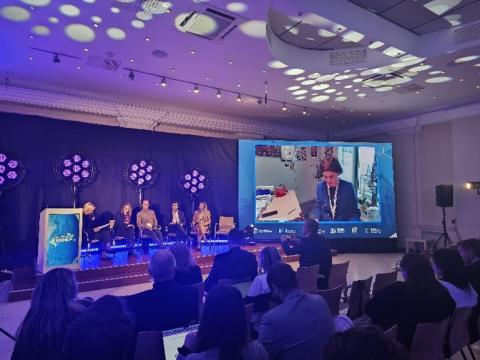
This was followed by the last panel of the day, focusing on "Cosmic Kraków and Smart Cities". Robert Piaskowski, Plenipotentiary of the Mayor of Kraków for Culture, discussed how Kraków has evolved into a "Smart Heritage City" and its significance for residents. "Creativity and heritage are great partners because heritage is proof that our ancestors were creative,” he said, highlighting the city's role as an outsourcing hub and its tourism appeal.
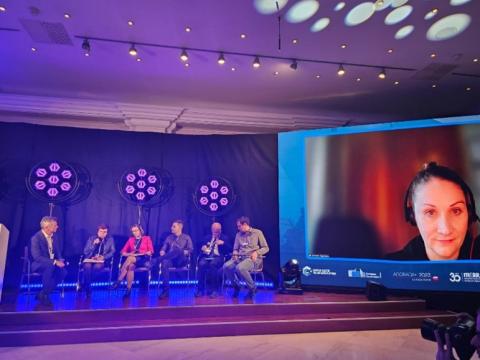
Borislava Woodford from the Joint Research Centre (JRC) of the European Commission elaborated on engaging with the New European Bauhaus initiative. She detailed projects like the New European Bauhaus Compass and the upcoming NEB Festival 2024, emphasizing its role in promoting sustainable choices.
Irena Łobocka and Tamás Gyulai discussed the EPIX project's effectiveness in smart city collaboration, highlighting digital innovation and cooperation with universities. They showcased successful examples, including the integration of digital innovation and circular economy in the Danube region’s "Danubians Cradle-to-Cradle Architecture and construction processes" linked to the New European Bauhaus initiative.
The day concluded with a panel on 'cosmic people' and life science. Speakers, including Justyna Topolska and Agata Kołodziejczyk from AGH University of Science and Technology, discussed the transformative impact of aerospace technologies on life sciences. “Space shows us new perspectives on the basic needs that we have on earth,” said Dr. Topolska. Dr. Kołodziejczyk added, “Space technologies give us important answers on critical questions," highlighting the potential of microgravity in advancing technologies researched in drug production and other sectors.
DAY 2
The second day focused on financial services supporting innovation, with discussions on Regional Innovation Valleys by Magdalena Cymerys from DG RTD European Commission, Euroclusters funding opportunities by Marek Przeor DG GROW European Commission, ESA technology broker network by Jarosław Chojnacki from Cracow Technology Park, and Interreg Funding by Angelika van Es from Interreg Central Europe.
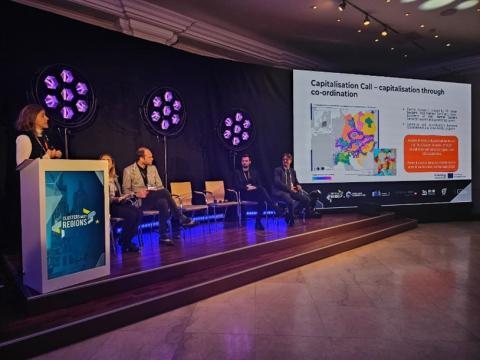
A pitching session followed, featuring diverse projects from clusters, development agencies, and technology centers across Europe. This session highlighted various initiatives, from climate risk assessment to strategic-operational management in cultural infrastructure.
- CLIMAAX Project Open Call
- Development Agency Zagreb
- EQA
- Klaster LifeScience Krakow
- Open Hub Creative Cluster – Friend CCI
- Oy Merinova Ab/EnergyVaasa Cluster
- Polish Cluster of Composite Technologies
- Polish IoT & AI Cluster - SINOTAIC
- South Poland Cleantech Cluster
- ZADRA NOVA RDA
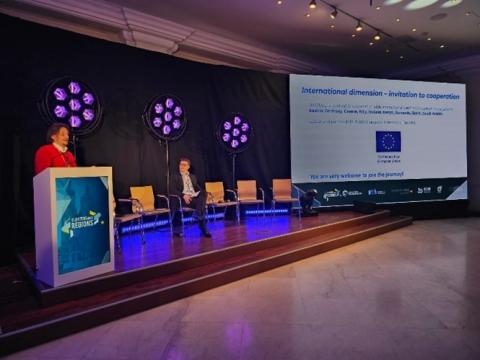 |
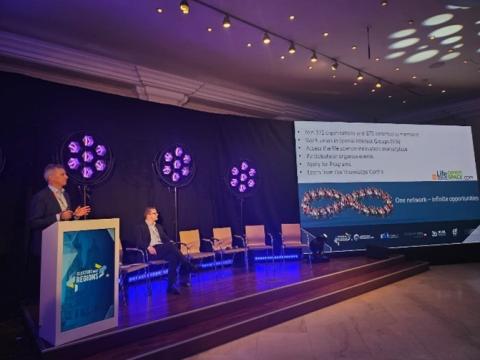 |
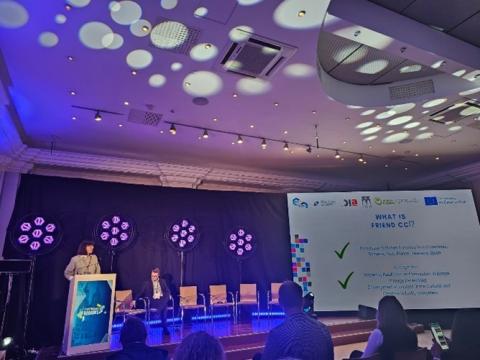 |
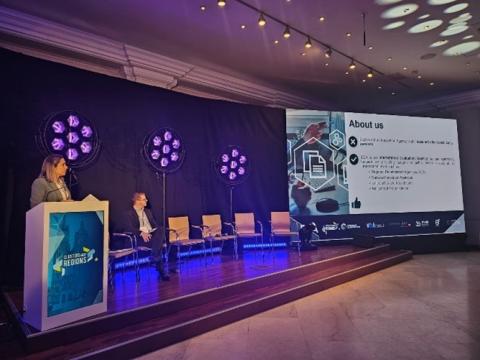 |
The final panel discussed the EU's initiatives to bolster Ukraine's resilience, with Marek Przeor stressing the fact Ukraine has been proposed as the EU accession country, Anastasiia Sorokina presenting Economy of Ukraine during the war conditions, Alexandre Yurchak of the Ukrainian Cluster Alliance detailing strategies for integration into EU supply chains and ecosystems and bilateral cooperation between EU clusters and Ukrainian clusters, Yevhen Rokytskyi on All Ukrainian Space clusters on cooperation possibilities with the Ukrainian innovative space clusters and Andrzej Slodki on Interreg PL-UA NEXT programme
The event concluded with a study tour of the ASTOR Show Room, offering insights into intelligent industrial technologies and automation systems, underscoring Poland's role in advancing global industry and engineering knowledge.
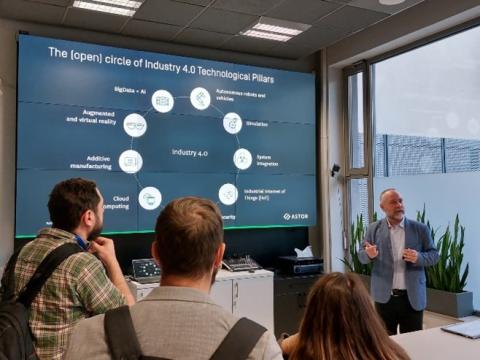 |
📸 For a visual journey of the event's moments, explore our photo gallery and share the memories!
